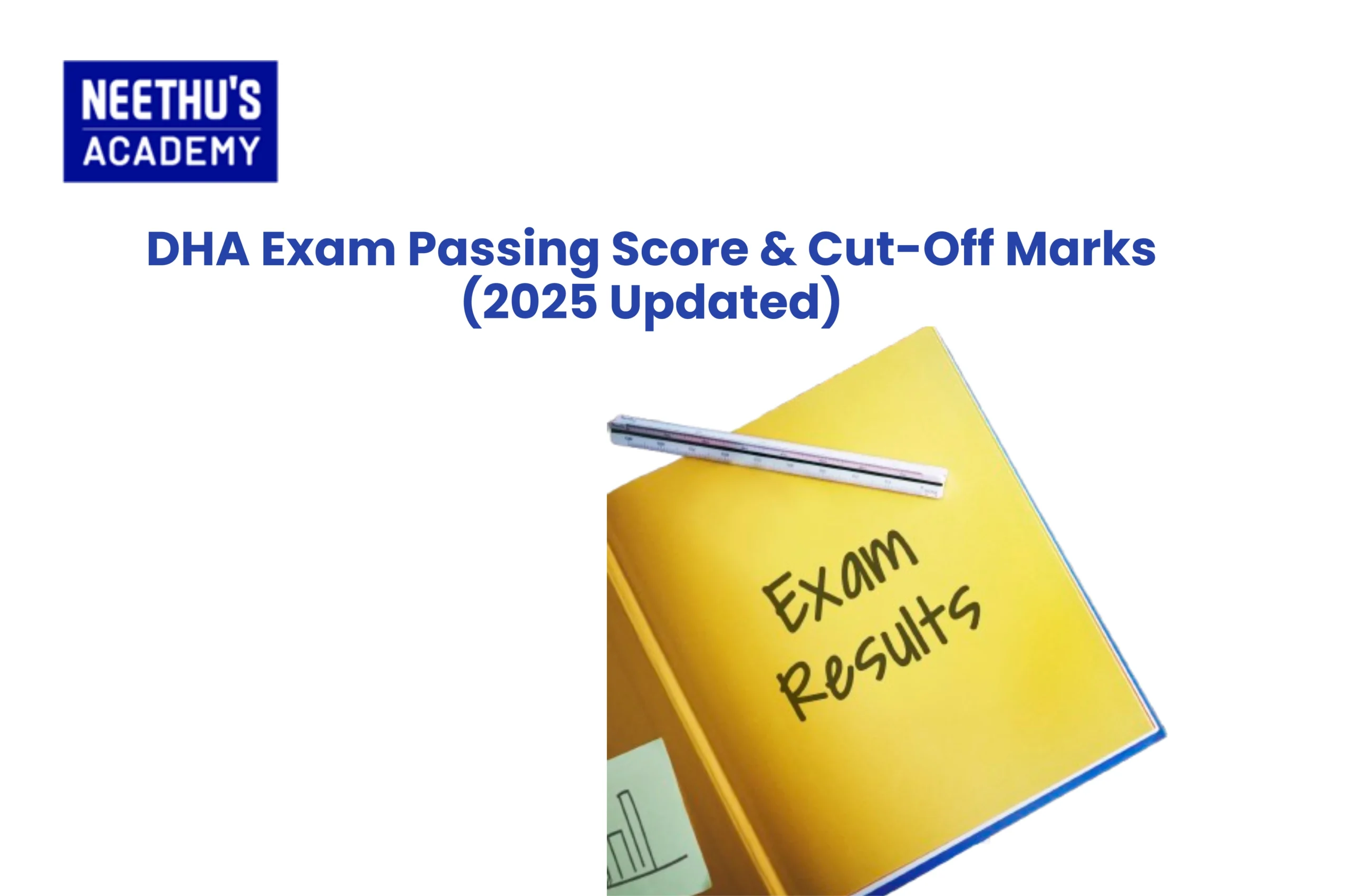Imagine you are running out of time and still have questions to complete! That would be the worst-case scenario while taking a…

NCLEX Tips and Tactics for Success: Ace the Exam with Confidence
One should have a strategic plan and approach to attain a good score in any examination. When it comes to nursing-related exams, the NCLEX-RN exam is a pivotal step to becoming a registered nurse in countries like the US and Canada. As the gateway to becoming a registered nurse, the NCLEX-RN demands not only a thorough understanding of nursing principles but also a strategic approach to test-taking.
This blog consists of the top tips and tricks from experts that you need to achieve a high score. We’ll cover the intricacies of the exam format, offer guidance on developing an effective study strategy, and share actionable last-minute tips to refine your preparation. By implementing these strategies, you can approach the NCLEX-RN with confidence and clarity.
Whether you’re preparing for the exam for the first time or looking to enhance your existing study plan, this guide will equip you with the tools you need to excel. Let’s explore how to leverage these insights to navigate the NCLEX with precision and achieve your professional goals.
Tips and Tactics for a good score in the NCLEX Exam
Performing well in the NCLEX-RN requires you to be multifaceted in your approach. This would mean learning the format of the examination, building a personal study plan, and studying methods that best work for taking tests. Let’s look at some essential tips that’ll get you your dream score:
Knowing The Format
One of the most important elements of preparation is knowing the format of the NCLEX. The NCLEX-RN is a Computerized Adaptive Test (CAT, meaning the difficulty shifts according to how well or poorly you answer. Here is a detailed breakdown:
Test Format: The exam consists of multiple-choice questions (MCQs), but it also includes alternate item types such as multiple responses, fill-in-the-blank, and hot spot questions. Familiarizing yourself with these different question types is essential for effective preparation.
Questions Asked: NCLEX-RN questions are categorized into four main areas: Safe and Effective Care Environment, which includes infection control, safety, and care management; Health Promotion and Maintenance, covering growth, development, and preventive care; Psychosocial Integrity, focusing on mental health, coping strategies, and the effects of illness; and Physiological Integrity, which involves basic care, pharmacological therapies, and risk reduction. Familiarity with these categories and their focus can help streamline your study efforts and improve your exam preparation.
Developing Your Strategy
To achieve a high score, it’s better to develop a strategy that works best for you. You can do this by:
Assessing Your Strengths and Weaknesses: Take a diagnostic test at the beginning to find out what areas you are strong in, and what areas you need to study. It saves study time in one respect because you can focus your studying time. For example, if you find out your weak area is pharmacological therapies, then you want to study that more carefully.
Set Realistic Goals: Split the big study plan into achievable goals. Setting specific, relevant, and time-bound goals will help someone achieve more. For example, set a certain number of questions to do every week and regularly review the progress one has achieved towards those targets.
Prepare a Study Schedule: Create a study schedule that indicates what and when you will study each day. Remember to leave time for review and self-testing. Regular, focused study sessions are more effective than studying by cramming.
NCLEX Preparation Strategy
The key to good preparation lies in understanding how to approach the questions and assess them on the NCLEX. You can achieve a high score by doing the following:
Test-Taking Strategies: Create a plan for responding to various kinds of questions. For prioritization questions, practice identifying the most critical issue first. For example, in a question asking about the management of multiple patients, prioritize based on the severity of their conditions.
Analyzing Questions: Learn to analyze each question carefully. Look for words and phrases that clarify the question’s main point. For instance, terms like “most important” or “immediate” can help you determine the best course of action.
Scoring System Review: The NCLEX scoring system works this way. First, it scores your abilities to show entry-level competence in nursing practice. You should answer the questions correctly to reach the passing standard determined by the test.
Make Strategic Decisions
The most important factor during the time of the test is making informed decisions to make the right choice.
Eliminating Incorrect Answers: Use the process of elimination to narrow down answer choices. Disregard options that are clearly incorrect or irrelevant. For example, if a question asks about a medication’s side effects and an option lists an effect not associated with that drug, eliminate it.
Choosing Correct Answers: Pay attention to the question’s root and make sure your selected answer is based on the best nursing practice and standards. For example, if a question requires teaching a patient, then choose an answer that presents evidence-based current practice.
Invest in Practice Questions: Practice with NCLEX-style questions routinely to get used to the question style and format, for which many resources are available that provide practice questions similar to the NCLEX exam.
Mode of Study
This means developing a decent study methodology that will help in retaining information and performing well on the exam.
Know Yourself: Understand your learning style and design your study methods to suit your learning preferences. Apply your learning style to ways of studying. For example, you are a visual learner; hence, use diagrams and charts to enforce the concepts.
Build Memory Strength: Employ the use of mnemonics, flashcards, and summaries that provide reinforcement of key concepts.
Develop Your Own Strategy: Formulate a study plan now that will play to your strengths and shore up any weaknesses. Be sure to include review time and self-testing.
Last-Minute Tips for NCLEX-RN 2024
Let’s take a look at some last-minute tips focused on study strategies for the NCLEX exam:
Review High-Yield Content: Focus on key topics like pharmacology, safety protocols, and major disease processes that are frequently tested.
Practice NCLEX-Style Questions: Spend time answering practice questions, especially those that mimic the exam’s format, to get comfortable with the question types.
Focus on Weak Areas: Identify any topics you’re struggling with and do a quick review to strengthen those areas.
Utilize Flashcards: Use flashcards for quick reviews of important concepts, especially for pharmacology and lab values.Revisit Test-Taking Strategies: Review strategies such as eliminating wrong answers, prioritizing patient care, and managing time effectively during the exam.
Stay Calm and Confident: In your final review, keep a positive mindset and trust in your preparation to boost your confidence going into the exam.
Get Enough Rest: Ensure you’re well-rested before the exam to maintain focus and clarity during the test.
Conclusion
Success on the NCLEX-RN requires strategic planning, effective study methods, and test-taking skills. By understanding the format of the exam, along with development of a study strategy and application of key tactics, your chances of getting a high score will be optimized. Always keep focused, practice regularly, and use the following NCLEX tips and tactics for your preparation. You can always be confident and get the desired results with NCLEX, provided you are dedicated and have an appropriate approach. You can also consult any coaching center for NCLEX-RN. They will give you expert advice and a customized strategy for you that will help you easily sail through the path of becoming a registered nurse. All the best with your NCLEX preparation; may success be yours!
Related Blogs
- All Posts
- OET
In case you are immigrating to Canada or looking for higher studies in the French-speaking parts of the nation, then the TCF…
Feeling a bit overwhelmed about the OSCE? You're not alone! The Objective Structured Clinical Examination is a big step in your medical…
Course Enquiry
Latest Posts
- All Posts
- canada
- CBT
- DELF
- DHA
- French
- GENERAL
- German
- Haad
- IELTS
- IQN NEW ZEALAND
- MOH
- NCLEX-RN
- NHRA
- OET
- OSCE
- Pearson Vue
- PROMETRIC
- PTE
- TOEFL
- Back
- NCLEX - NGN
- Back
- OET FOR PHYSIOTHERAPIST
- OET FOR PHARMACIST
- OET FOR DOCTORS



Frequently Asked Questions
The best study methods include reviewing key content areas, using NCLEX practice questions, creating a study schedule, and using reliable resources like NCLEX prep books or online courses. Focus on areas where you feel less confident and regularly practice test questions.
Create a realistic study plan that breaks down topics over several weeks. Dedicate time to each subject area daily, alternating between practice questions and content review. Take regular breaks to avoid burnout and track your progress to stay on course.
The NCLEX includes multiple-choice, select-all-that-apply, fill-in-the-blank, and ordered response questions. These assess your ability to apply knowledge in real-life nursing scenarios and critical thinking.
Reduce anxiety by sticking to your study plan, taking practice exams, and familiarizing yourself with the test format. Practice relaxation techniques like deep breathing and ensure you’re well-rested before test day. Confidence builds with preparation!
